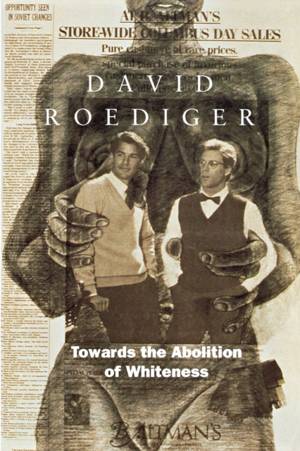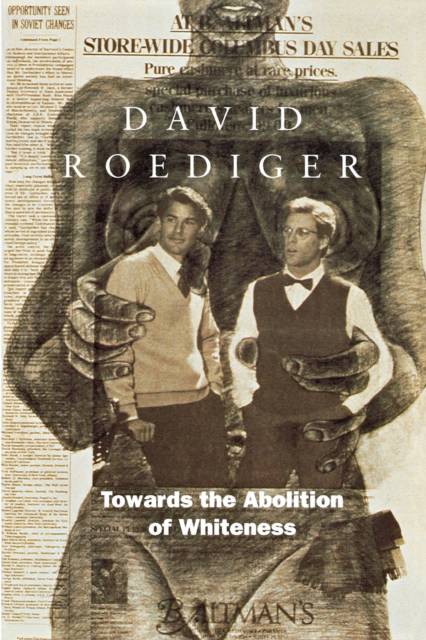
En raison d'une grêve chez bpost, votre commande pourrait être retardée. Vous avez besoin d’un livre rapidement ? Nos magasins vous accueillent à bras ouverts !
- Retrait gratuit dans votre magasin Club
- 7.000.000 titres dans notre catalogue
- Payer en toute sécurité
- Toujours un magasin près de chez vous
En raison de la grêve chez bpost, votre commande pourrait être retardée. Vous avez besoin d’un livre rapidement ? Nos magasins vous accueillent à bras ouverts !
- Retrait gratuit dans votre magasin Club
- 7.000.0000 titres dans notre catalogue
- Payer en toute sécurité
- Toujours un magasin près de chez vous
Towards the Abolition of Whiteness
Essays on Race, Politics, and Working Class History
David R Roediger
22,95 €
+ 45 points
Description
Towards the Abolition of Whiteness collects David Roediger's recent essays, many published here for the first time, and counts the costs of whiteness in the past and present of the US. It finds those costs insupportable. At a time when prevailing liberal wisdom argues for the downplaying of race in the hope of building coalitions dedicated to economic reform, Roediger wants to open, not close, debates on the privileges and miseries associated with being white. He closely examines the way in which white identities have historically prepared white Americans to accept the oppression of others, the emptiness of their own lives, and the impossibility of change. Whether discussing popular culture, race and ethnicity, the evolution of such American keywords as gook, boss and redneck, the strikes of 1877 or the election of 1992, Roediger pushes at the boundaries between labor history and politics, as well as those between race and class. Alive to tension within what James Baldwin called "the lie of whiteness," Roediger explores the record of dissent from white identity, especially in the cultural realm, and encourages the search for effective political challenges to whiteness.
Spécifications
Parties prenantes
- Auteur(s) :
- Editeur:
Contenu
- Nombre de pages :
- 218
- Langue:
- Anglais
- Collection :
Caractéristiques
- EAN:
- 9780860916581
- Date de parution :
- 17-03-94
- Format:
- Livre broché
- Format numérique:
- Trade paperback (VS)
- Dimensions :
- 152 mm x 233 mm
- Poids :
- 349 g

Les avis
Nous publions uniquement les avis qui respectent les conditions requises. Consultez nos conditions pour les avis.






